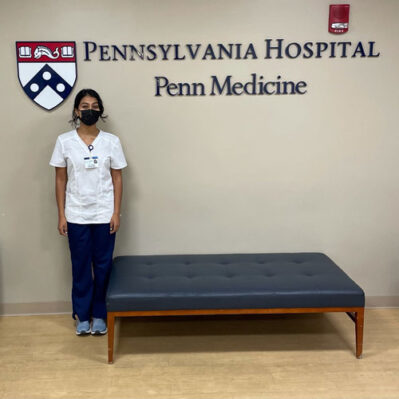 With most in-person opportunities stripped away due to COVID-19, I was unsure of what I wanted to do during the summer following my sophomore year. I have always been interested in the healthcare industry and have a strong background in the life sciences, but I was at a loss on how to combine my dual passions for healthcare policy and quantitative analysis in hopes of improving care. However, the perfect opportunity fell into place after I reached out to Penn Nursing’s Dr. Sarah Kagan, Lucy Walker Honorary Term Professor of Gerontological Nursing, in early 2021 to learn more about her experience working with older adults.
With most in-person opportunities stripped away due to COVID-19, I was unsure of what I wanted to do during the summer following my sophomore year. I have always been interested in the healthcare industry and have a strong background in the life sciences, but I was at a loss on how to combine my dual passions for healthcare policy and quantitative analysis in hopes of improving care. However, the perfect opportunity fell into place after I reached out to Penn Nursing’s Dr. Sarah Kagan, Lucy Walker Honorary Term Professor of Gerontological Nursing, in early 2021 to learn more about her experience working with older adults.
After an extremely informative conversation, Professor Kagan offered to connect me with the NICHE (Nurses Improving Care for Healthsystem Elders) team at Pennsylvania Hospital given my analytical skill set and interest in older adult care. The NICHE team aims to improve the quality of care of older adults in healthcare settings. Throughout Spring 2021, I collaborated with the team, primarily helping them analyze their patient falls data and creating Tableau dashboards to communicate the results.
When the team offered the opportunity for me to continue my work over the summer, I knew that it would be an incredible opportunity to analyze other quality metrics. With funding provided by Wharton through the Philadelphia Summer Internship Award, I was able to take the offer and have a really enriching summer experience!
When I first joined the team in the spring, they were launching their Age-Friendly education programming. Having attended some of the speaker events, I noticed how a lot of common issues within older adults were not being addressed in a hospital setting – delirium, medication reconciliation, poor nutrition, etc.
The main project I worked on this summer was how to incorporate underutilized metrics into standard practice for nurses and patient care technicians (PCTs). The framework that I used was the 4Ms created by the Age-Friendly Health System Initiative. The 4Ms refer to evidence-based elements of high-quality care for older adults and include “What Matters, Mobility, Mentation, and Medication.” I connected with the NICHE team and other clinical team members to learn about the current barriers that prevent the regular utilization of metrics for each of these elements. A big source of support was connecting with the physical therapy and pharmacy departments in the hospital to learn about what metrics they use and then seeing if the rest of the hospital could utilize similar ones to promote better transitions of care. Ultimately, I formally presented my insights to the NICHE team about which metrics I thought were most useful and worked with them to start implementing the use of those metrics.
While the NICHE team was in the process of educating the nurses and PCTs, I thought this would be an exciting opportunity to do an evaluation study on the impact of age-friendly education. I designed an evaluation research project to analyze how Age-Friendly education affects clinical teams’ care for older adults, where I survey clinical attitudes, EMR metrics, and patient experiences to quantify the impact of the education program. Although the formal internship experience ended in mid-August, I am still working on the evaluation research project and plan to send out the pre-test survey and measure baseline data later this fall.
Overall, what I loved most about this project was realizing the impact of my work on the Philadelphia community. Although my experience over the summer was remote, I started volunteering in-person at Pennsylvania Hospital this semester, and it’s been really exciting to see some of my work from the summer slowly being implemented. I would recommend everyone take advantage of the many opportunities within the Philadelphia community because it is such an enriching experience to see your internship affect the community you live in!


